Media | Articles
Review: 2021 Lexus LC 500 Convertible
Grandiose, opulent two-plus-two grand tourers are a rare treat these days. Even in the high end of the market, elite manufacturers are stressing high-performance over high-concept luxury. That means turbocharged engines, if Ferrari, Porsche, Mercedes-AMG, and Aston Martin are any indication. A free-breathing V-8 that sounds like automotive angels singing? Now that’s something special.
But for all of the Lexus LC 500’s merits, its engine is merely one of many. This car’s development, manufacturing, and marketing dollars could have been spent a million different ways—heck, it could have been a crude, ungainly mega-SUV and sold double the volume a GT car could ever hope to in 2021. Instead, Lexus committed to delivering a gorgeous, magnificently crafted vision of pleasurable transportation. Was anyone really pining for a world-class luxury two-door from Lexus? That this car exists at all is remarkable; that it’s this good is the reason I’m still smiling, even weeks after surrendering the keys.
My test car wore gorgeous Nori Green Pearl paint, which looks a mile deep and says a lot about how Lexus approaches the details. Just a few options were tacked on to the car’s $102,025 base MSRP (including the $1025 destination fee): $2650 for 21-inch forged alloy wheels; a $900 heads-up display; a Torsen limited-slip rear diff and Yamaha Performance dampers for $460; and the $5290 Touring Package, which nets snazzier leather for the front seats, upper body heating, a heated steering wheel, Mark Levinson 13-speaker sound system, and a few more odds and ends. That’s an all-in price of $111,325—still less than a base 911 Cabriolet and much less than a base Mercedes-AMG GT Roadster.
The shape of the car is uncommonly exquisite. Parked outside my barbershop, no less than a dozen passers-by stopped and gawked at its design, camera phones snapping memories from all angles. It’s the best adaptation by a long shot of Lexus’ angular design language, making even the four-door LS 500 sedan—which shares the LC’s TNGA-L underpinnings—look like an afterthought.
What’s more, when the LC first bowed at the 2012 Detroit Auto Show as the mind-melting LF-LC concept, everyone anticipated that it would undergo a litany of boardroom softenings before reaching production. (Just look at how the FT-1 concept from 2014 morphed into a much-muted Supra.) Instead, the production LC 500 rolled on stage in Detroit in 2016 looking just as compelling as the concept.
Marketplace
Buy and sell classics with confidence
Nowhere is the sense of occasion more apparent than when you slink down into the LC’s shapely leather seats. Acres of Toasted Caramel leather create a warm, vibrant interior that perfectly complements the exterior paint. The doors close with a solid thunk, and generous elbow rests are perfect for one-arming it during a freeway blast after work. Every touchpoint is rock-solid, consistent with Lexus’ knack for building cars that feel the same at 100,000 miles as they do at 3000. A character line sweeping from door to door makes the cabin feel even wider than it already is. The sliding gauge circle within the TFT instrument cluster remains one of the best marriages of modern and analog tech anywhere in the industry. Broad-ribbed occupants should be warned that the front seats are a little snug, but they’re by no means uncomfortable for half-day jaunts across flyover country. As with many cars of the 2+2 ilk, the rear seats are best imagined as CPO-grade: Children and Parcels Only.
Lexus adding a convertible option for the 2021 model year felt like a mic-drop for a car that already makes costlier competitors look and feel pedestrian. Customers are taking notice, too; as of Q3 this year, the LC has sold 2372 examples in the U.S. alone, eclipsing the 2000-units-annually mark for the first time since the model’s debut. Credit for this achievement lies largely at the feet of the roofless option, which Lexus says is responsible for roughly 80 percent of sales this year.
This is the type of car perfectly suited to open-top motoring; the LC doesn’t comport itself as a track assassin—a point underscored by its Bridgestone run-flat tires—but its cornering capability is nonetheless more than enough to entertain. Zero-to-60 times (Lexus claims 4.6 seconds) aren’t the point here, nor is top speed (168, electronically limited). Historically, even the gnarliest Lexus track cars have fallen short of the mark when it came to stopwatch heroics. Freed from the mandate of lap times, the LC comes into its own. It’s still a hefty car at 4540 pounds, but the transversely-mounted Yamaha rear damper (part of the $460 package that also nets that limited-slip rear diff) and adaptive variable suspension keep that glut in check, even over Northern Michigan’s worst roads. The brake-by-wire system feels a split second delayed when you apply and release the pedal through crawling traffic, but the stoppers erase serious speed with zero drama.
A grand tourer of this caliber demands an equally exciting engine, and Lexus’ 5.0-liter DOHC V-8 is more than up to the task. While this same engine can be found in other sporty Lexus offerings such as the IS 500 F Sport and the RC F, it feels tailor-made for duty under the LC’s aluminum hood. The V-8 pairs with a 10-speed automatic that’s been re-tuned for 2021, and the whole business turns the rear wheels exclusively. Coupe LCs can also be had as a hybrid, blending a 3.5-liter V-6 with two electric motors and a small 1.1 kWh battery, but opting for that layout feels like paying a Michelin-star chef to whip up a box of Easy Mac. Orders reflect this, according to Lexus; the lion’s share of LCs come optioned with the eight rather than the hybrid.

Uncorked, the exhaust note will make even muscle-car faithful weak in the knees. AMG’s 4.0-liter twin-turbo V-8 packs more punch, but there, more revs simply means louder; in the all-aluminum Lexus mill, climbing the tach sends the exhaust note on an operatic dash up the pitch scale. Flip the drive mode selector to Sport and the joystick shifter to manual-shift mode, and you’ve got the paddle-shifted conductor baton to 10 gears and the accompanying soundtrack. You’ll scamper away from stoplights holding first gear, top dropped, just because you can.
Perhaps the noise will distract you from Lexus’ woeful infotainment system. The laptop-like trackpad is fraught with twitchy haptic feedback, and in my 11 days behind the wheel, I never once successfully navigated the seat control menus on the first attempt. For a vehicle clearly still designed with older drivers in mind—there’s still a CD player front and center—this system feels particularly egregious. (Lexus must agree—the new LX 600 does away with it in favor of dual touchscreens. Expect similar adjustments to future models.)
The best remedy, of course, is to ignore the interface and point the LC’s sculpted hood at the horizon. Sure, Porsche’s 911 Cabriolet may carry more prestige, and Mercedes is bringing back the slinky SL roadster next year, but the former is a dime-a-dozen token of affluence, and the latter won’t even offer rear-wheel drive. Jaguar’s soon-dead F-Type is a teardrop-shaped beauty, but parked next to the LC, even the Brit seems a bit ho-hum.
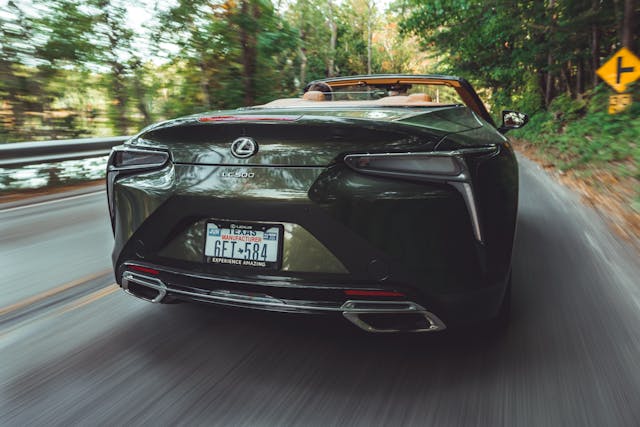
The LC 500 is very much its own thing, and by no means a true successor to the LFA. The latter was a hyper-focused track-charging vanity project exploring the limits of what Lexus could produce when given technical and financial carte blanche. The limited-run supercar proved that Lexus is capable of building an incredible machine worthy of historical recognition—look no further than our 2021 Bull Market List. You can see some of the LFA’s influence in the LC, but there’s no production cap here, no connection to Formula 1, no massive adjustable rear wing, no appetite for track apexes. What’s here instead is the sheer enjoyment of everyday driving and the individual sensations that provide it. Raw pace need not be among them.

Like the LFA, however, the LC will stand out as a halo car atop a fleet of clinically executed offerings with little to no fizz. And even if Lexus is brave enough to develop a successor, it’s hard to imagine the recipe won’t involve electric motors and a battery of some kind. When asked about the prospect of a pure-EV variant, Lexus simply stated that it was an “ongoing study”—corporate speak for “not any time soon.” Revving up and down the tach is an experiential ingredient that will be tough to replace. As it sits now, with a majestic powertrain wrapped in stunning sheetmetal and sumptuous materials galore, the LC 500 makes driving feel like an event. And that’s how it should be.
2021 Lexus LC 500 Convertible
Base price/as tested: $102,025/$111,325
Highs: Truly exquisite styling, particularly with the top down. Glorious V-8 engine. Beautiful color palette and unique interior design.
Lows: Frustrating infotainment system, touchy brake pedal in low-speed traffic.
Summary: One of the great grand touring cars of the modern era, from a brand that easily could have ignored this segment and built a safer, more profitable vehicle. It’s a big risk that paid off.

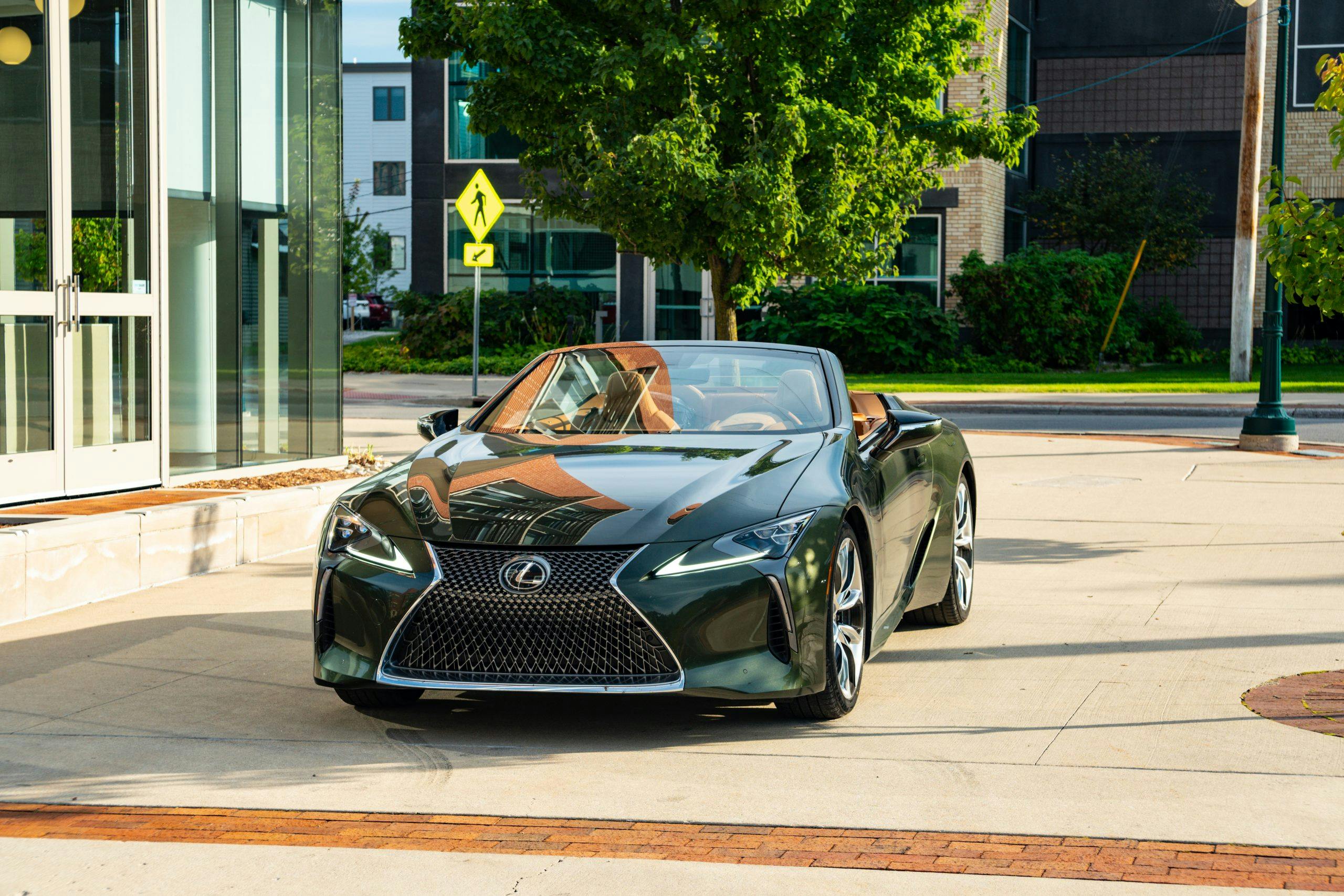
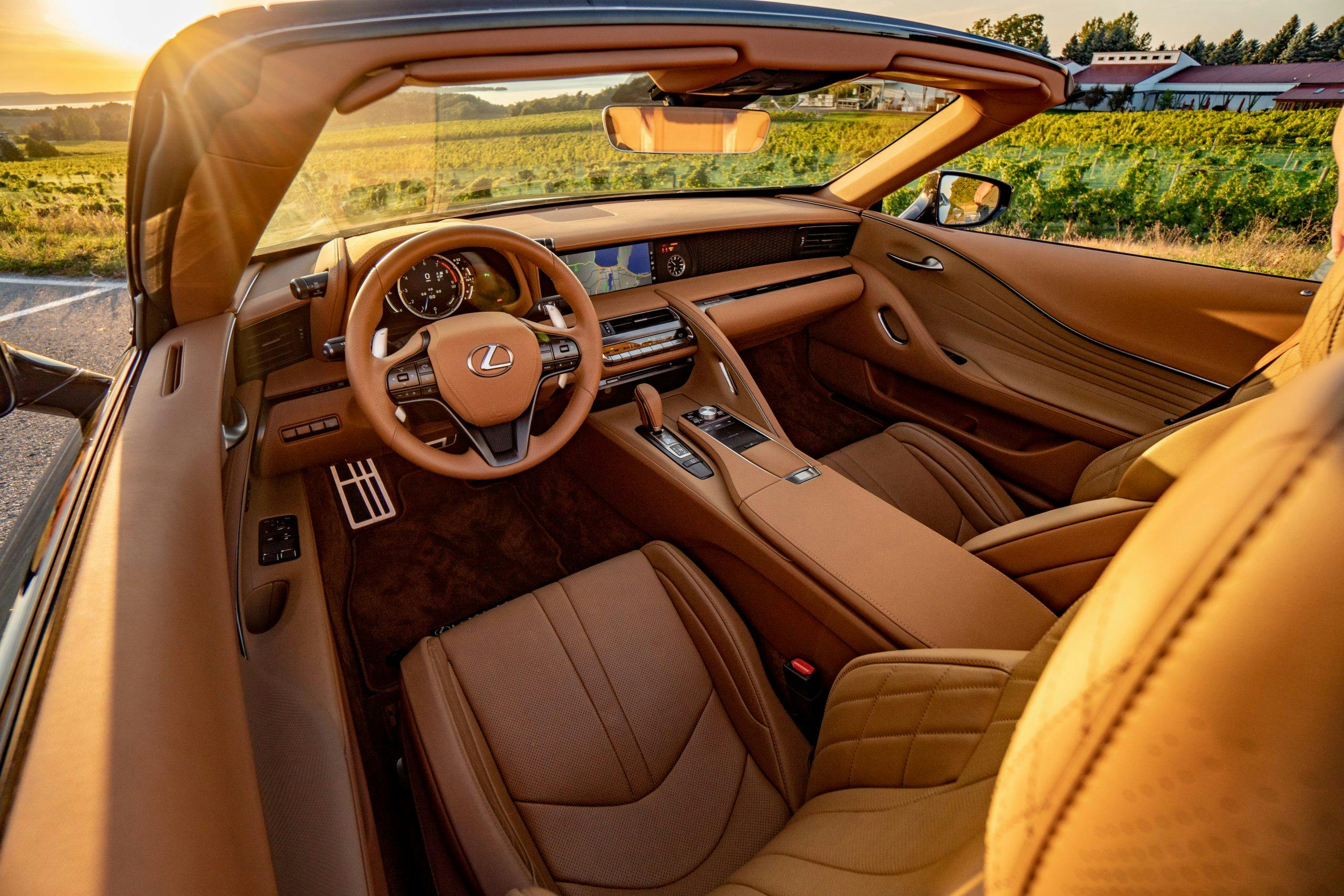
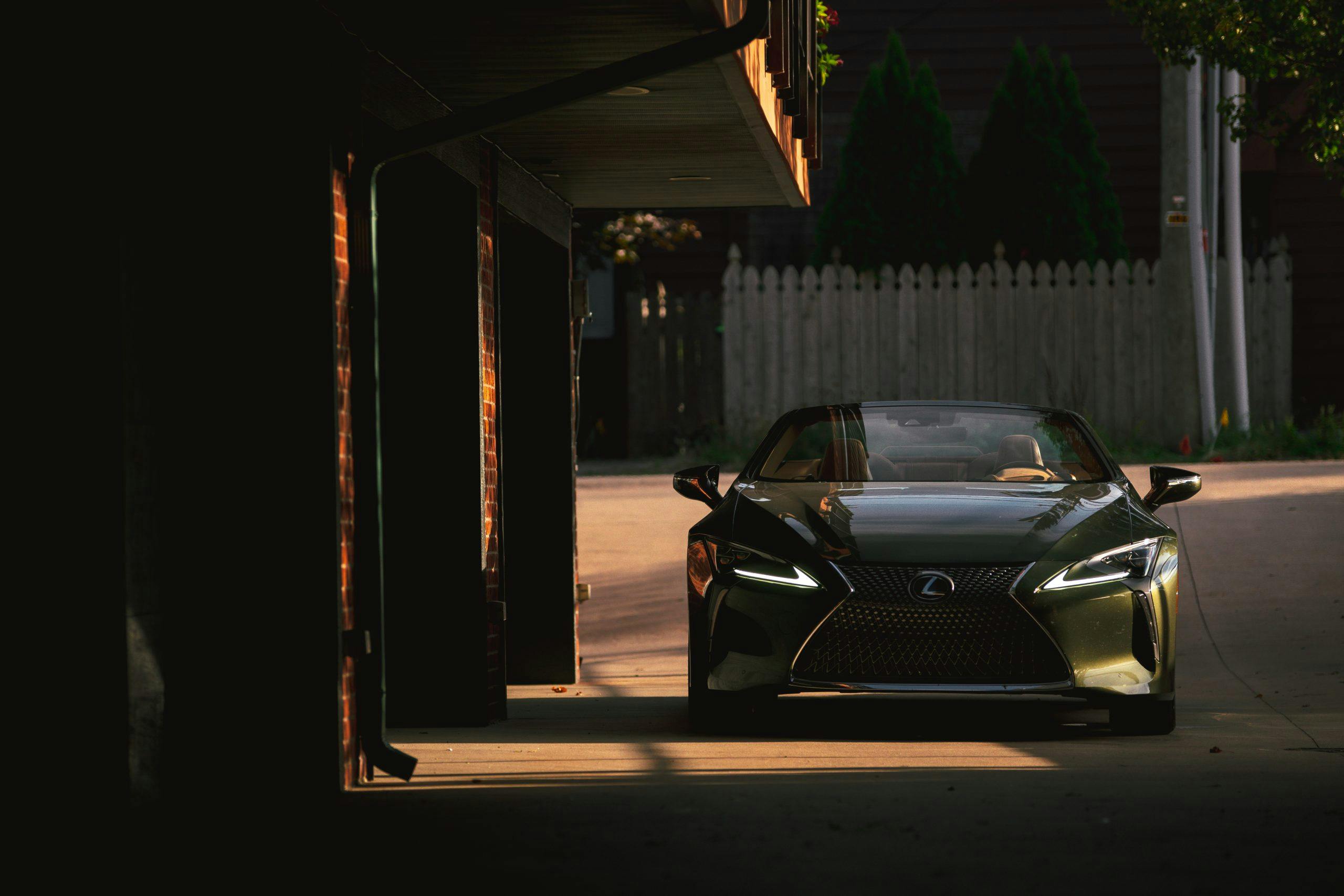
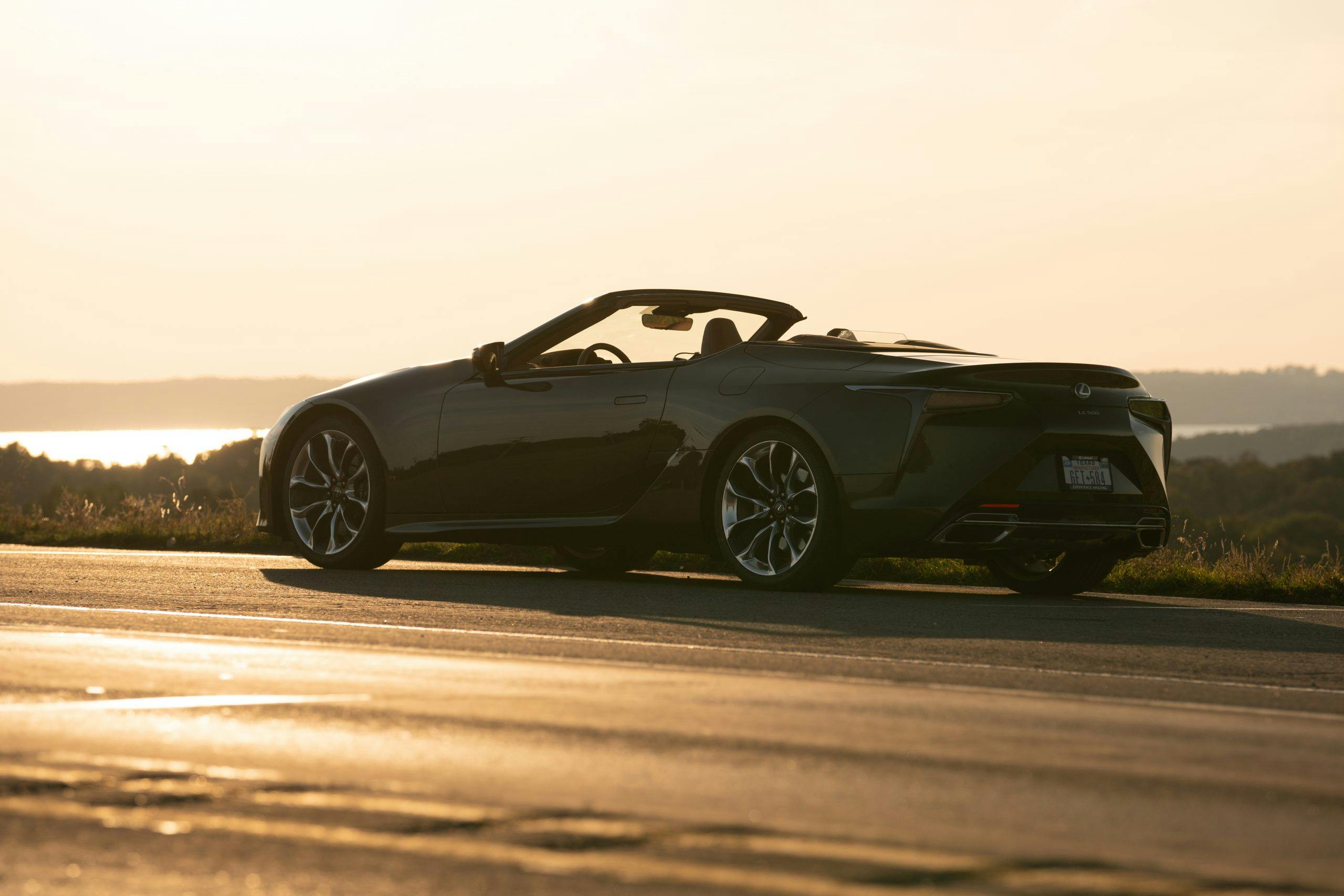





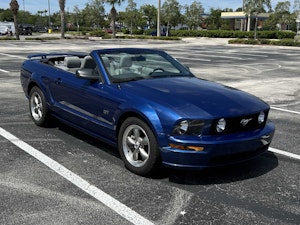
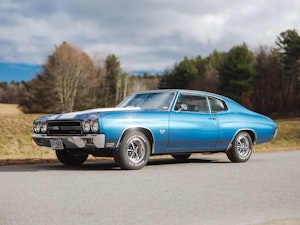

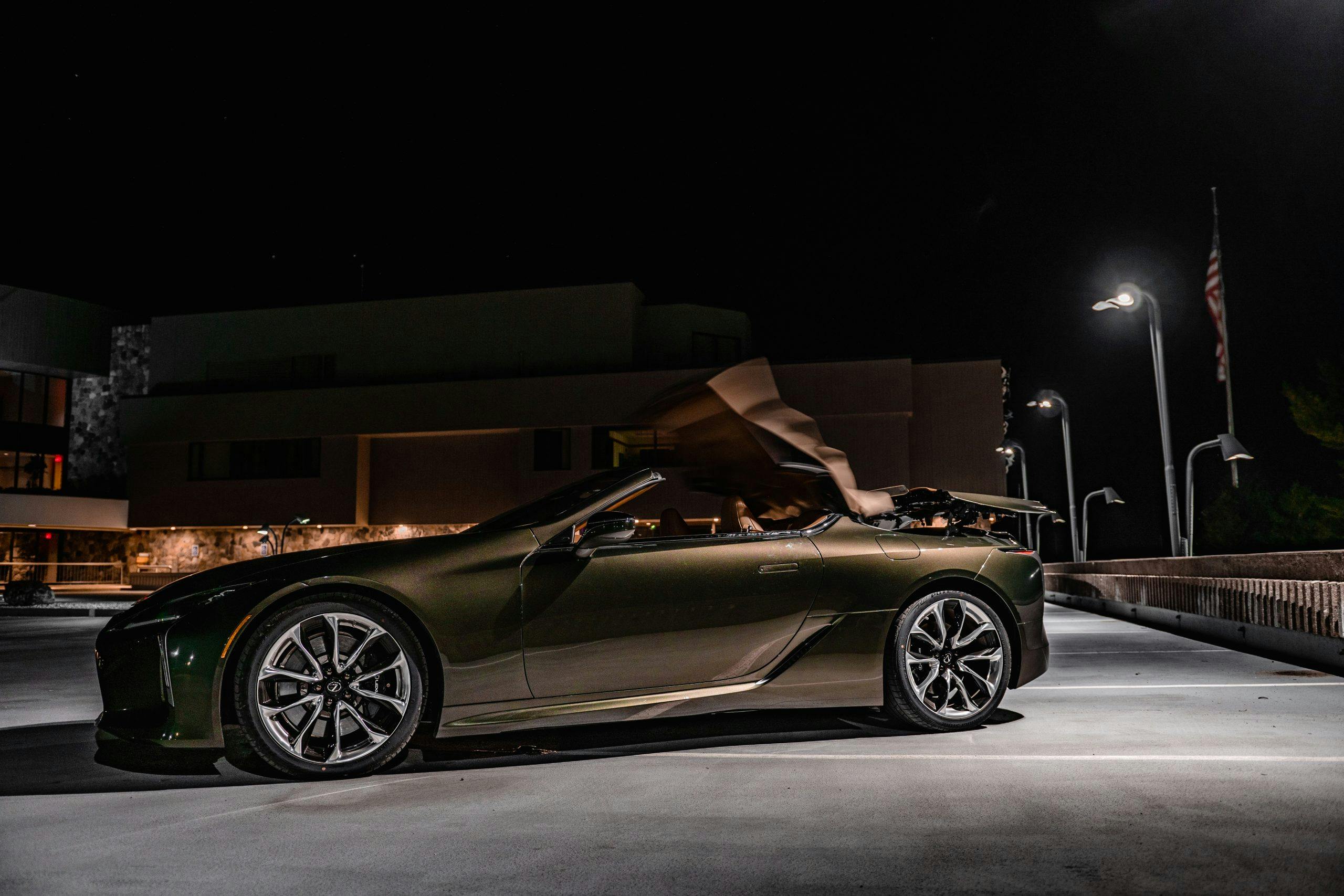
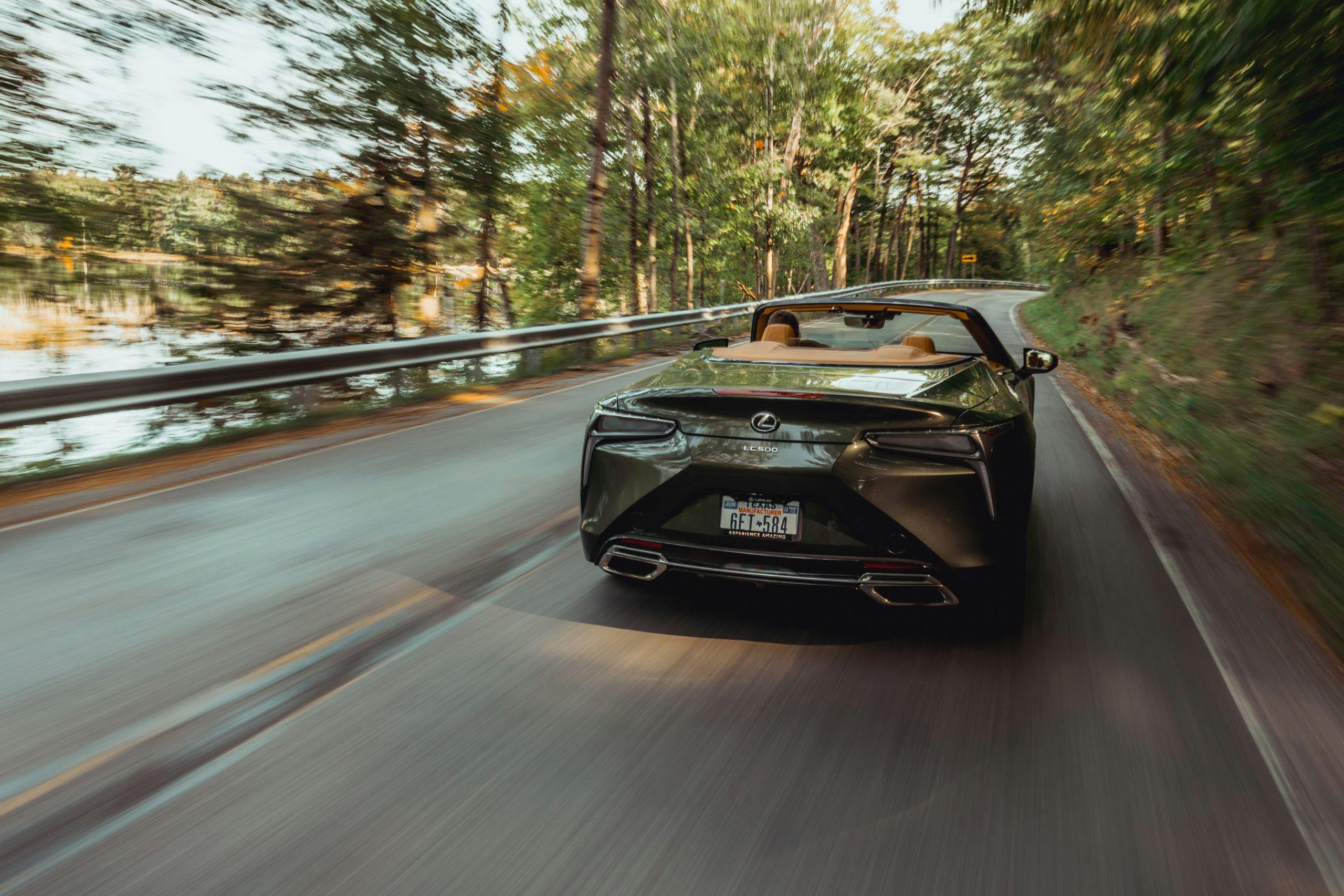
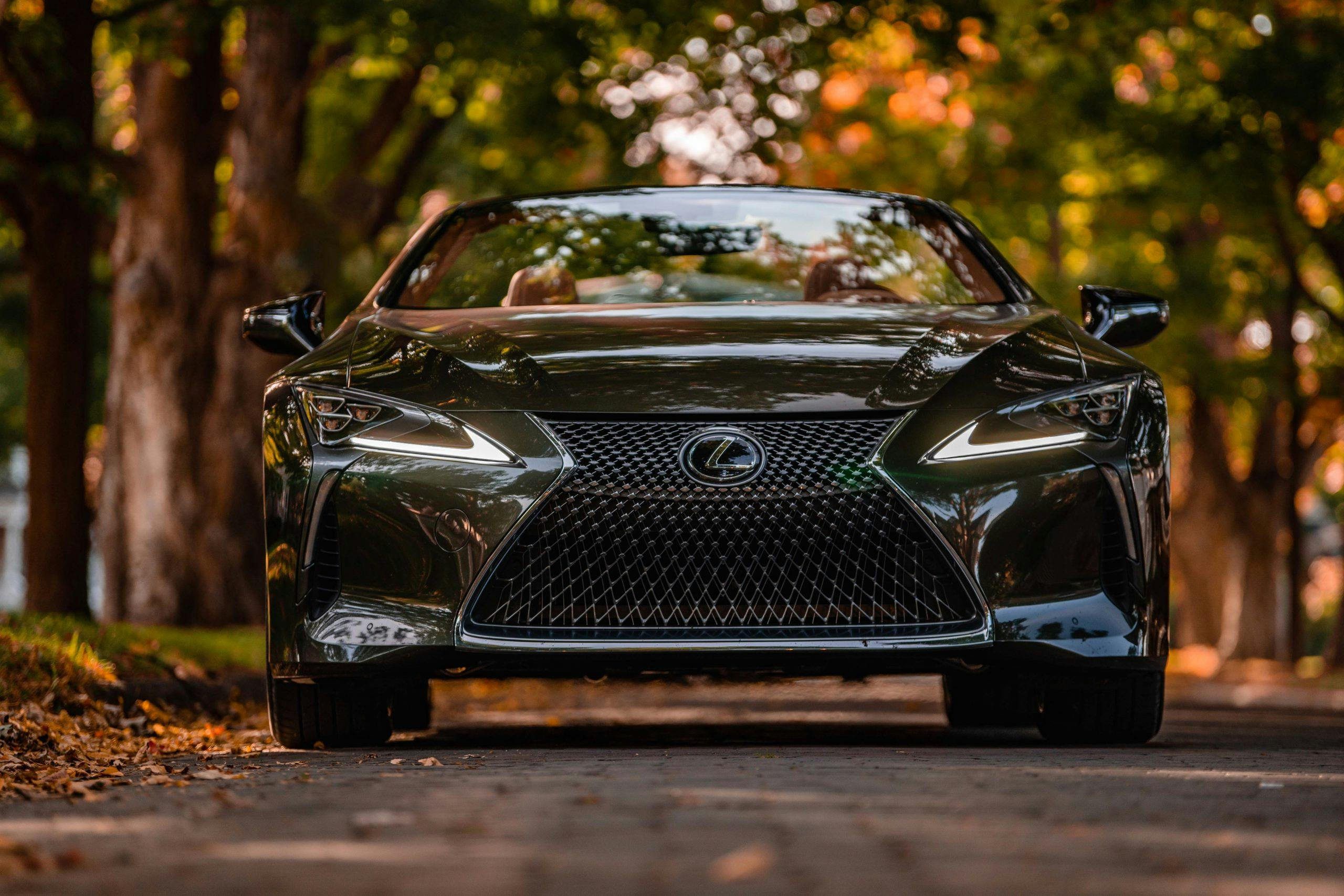
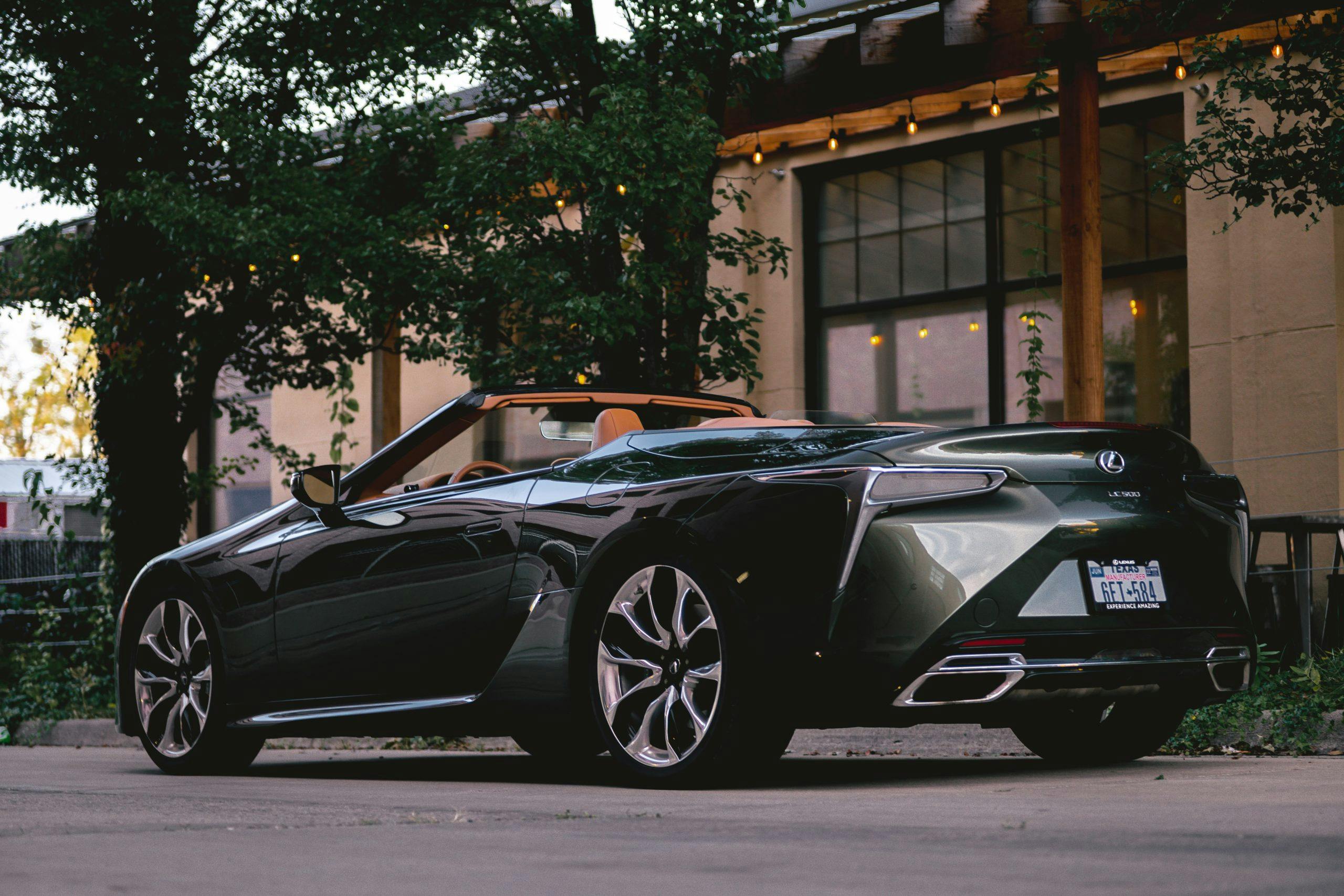
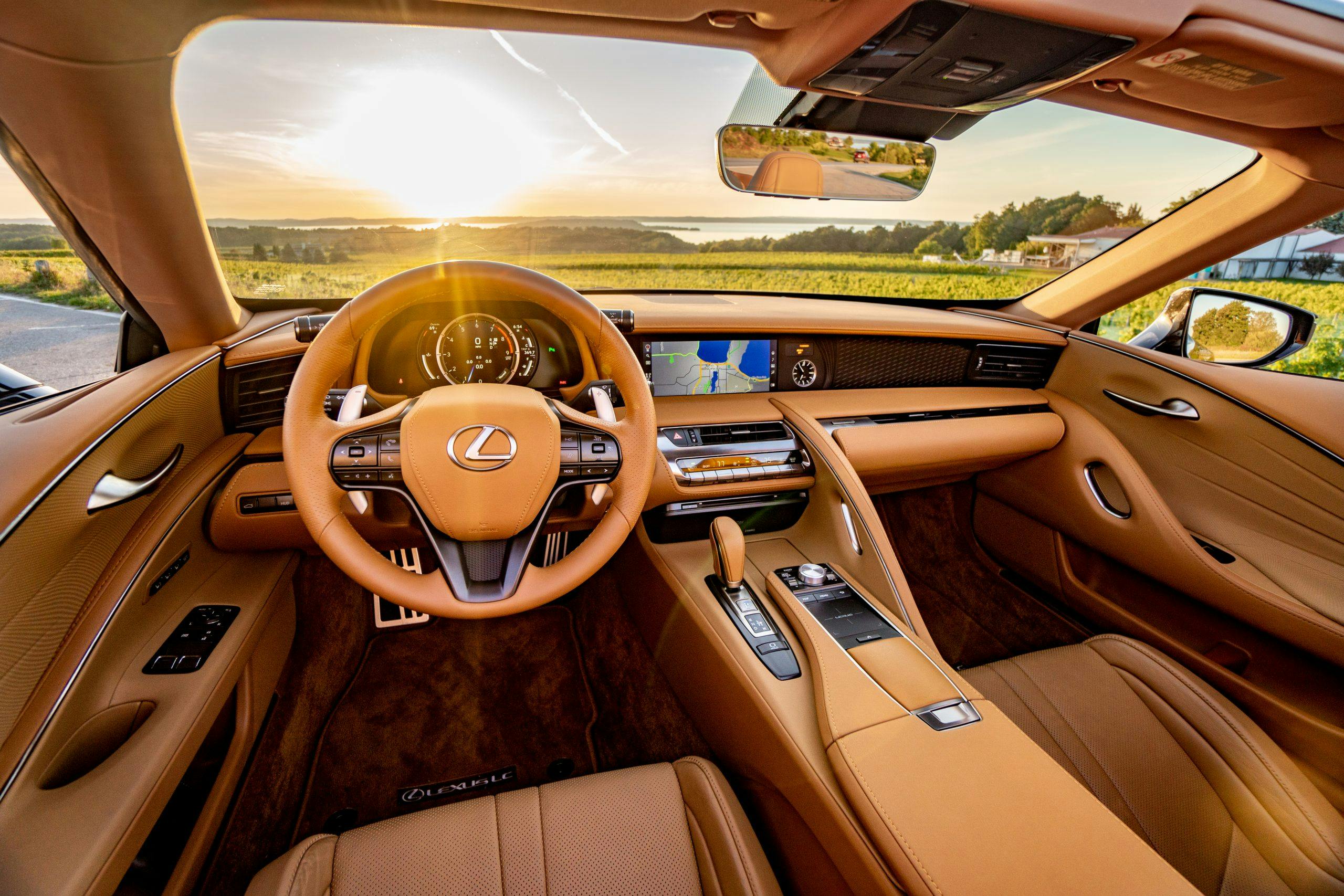

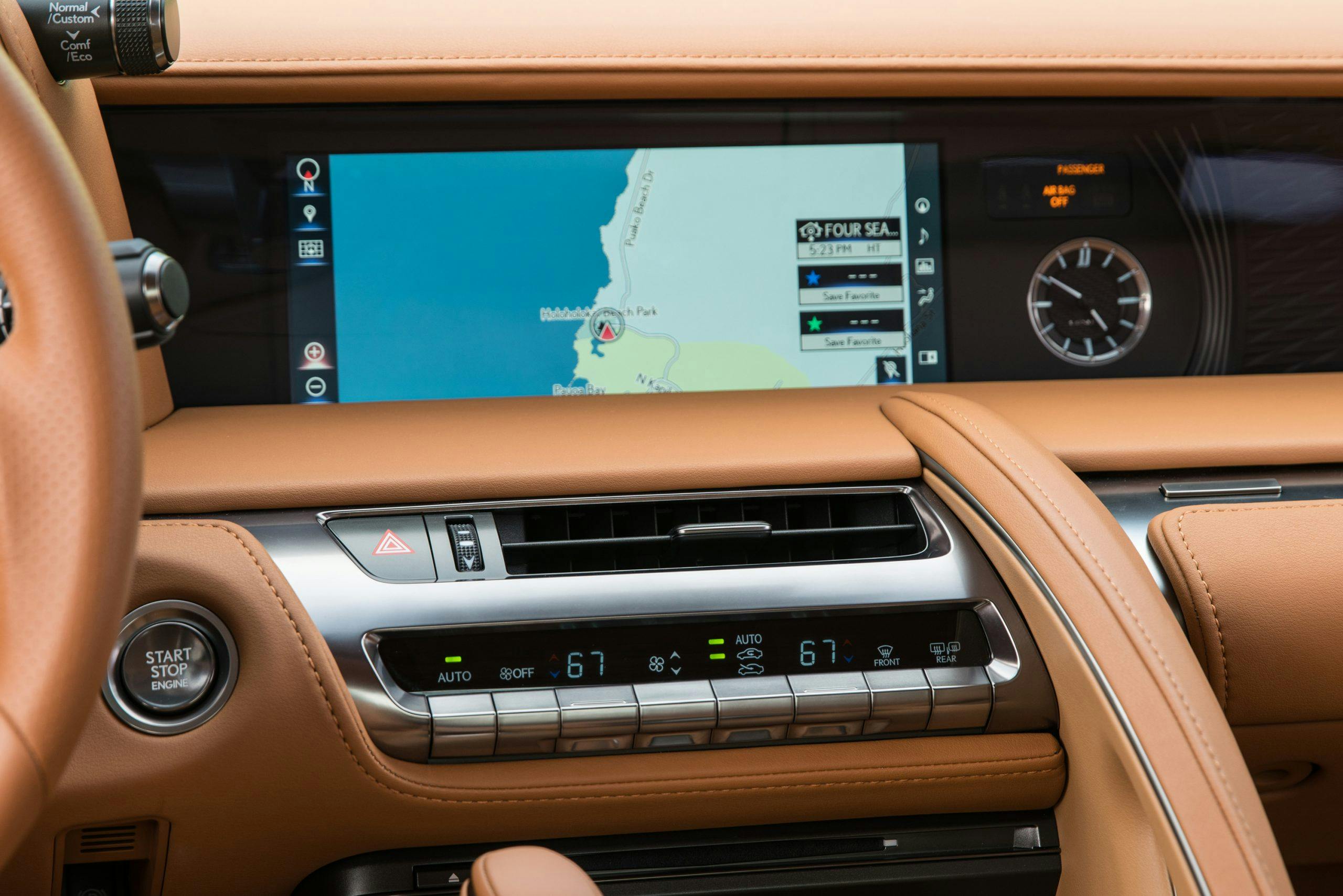
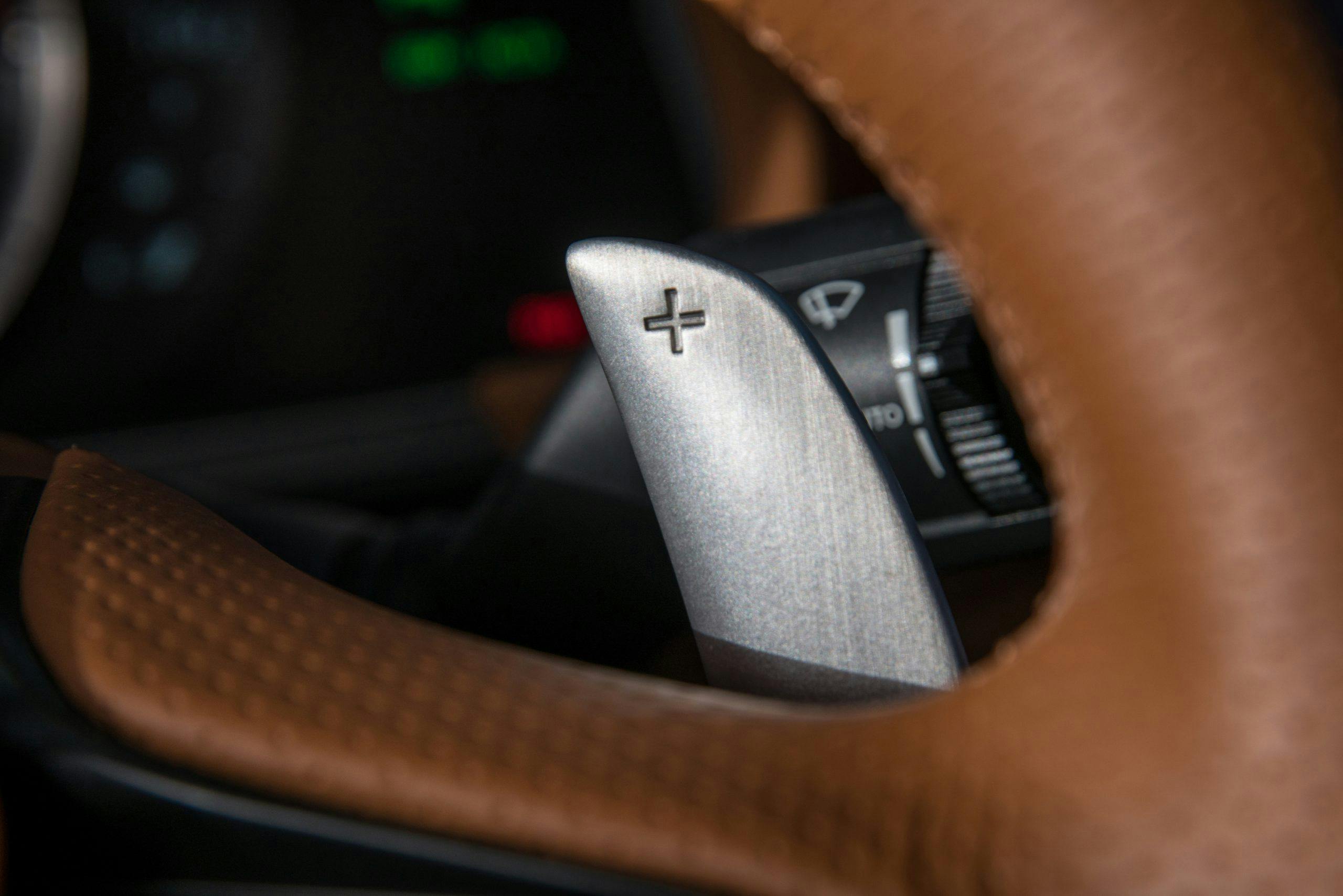
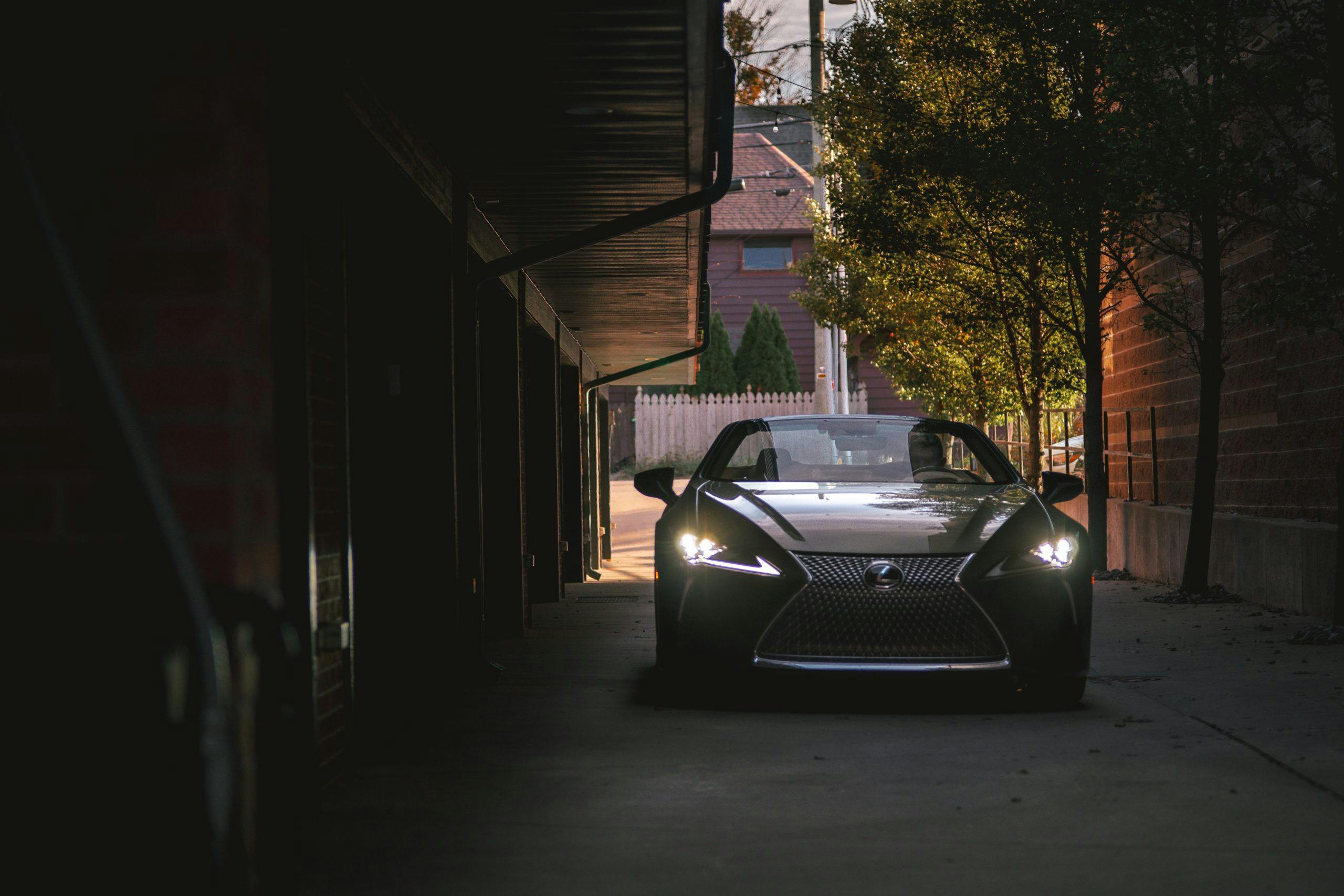
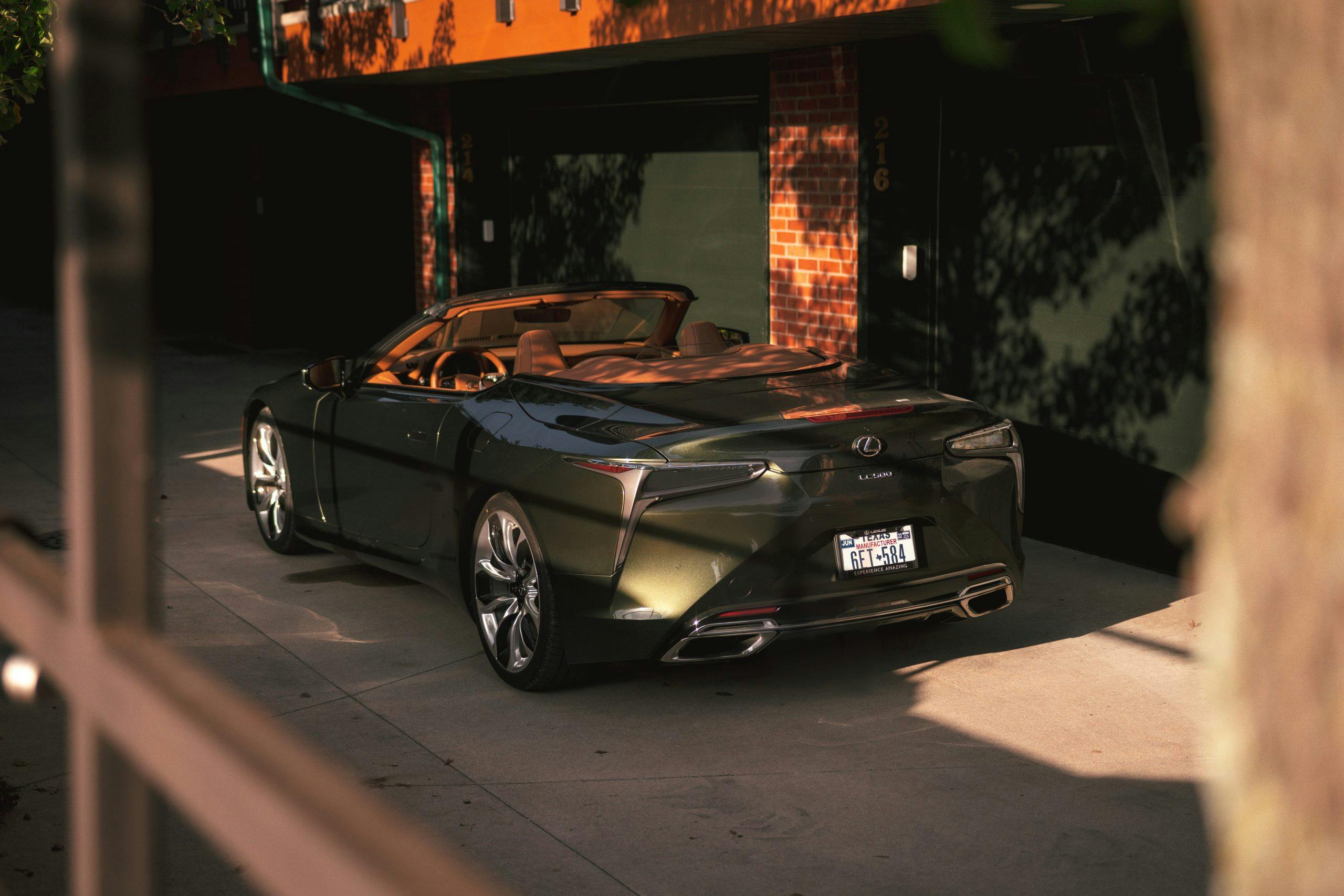
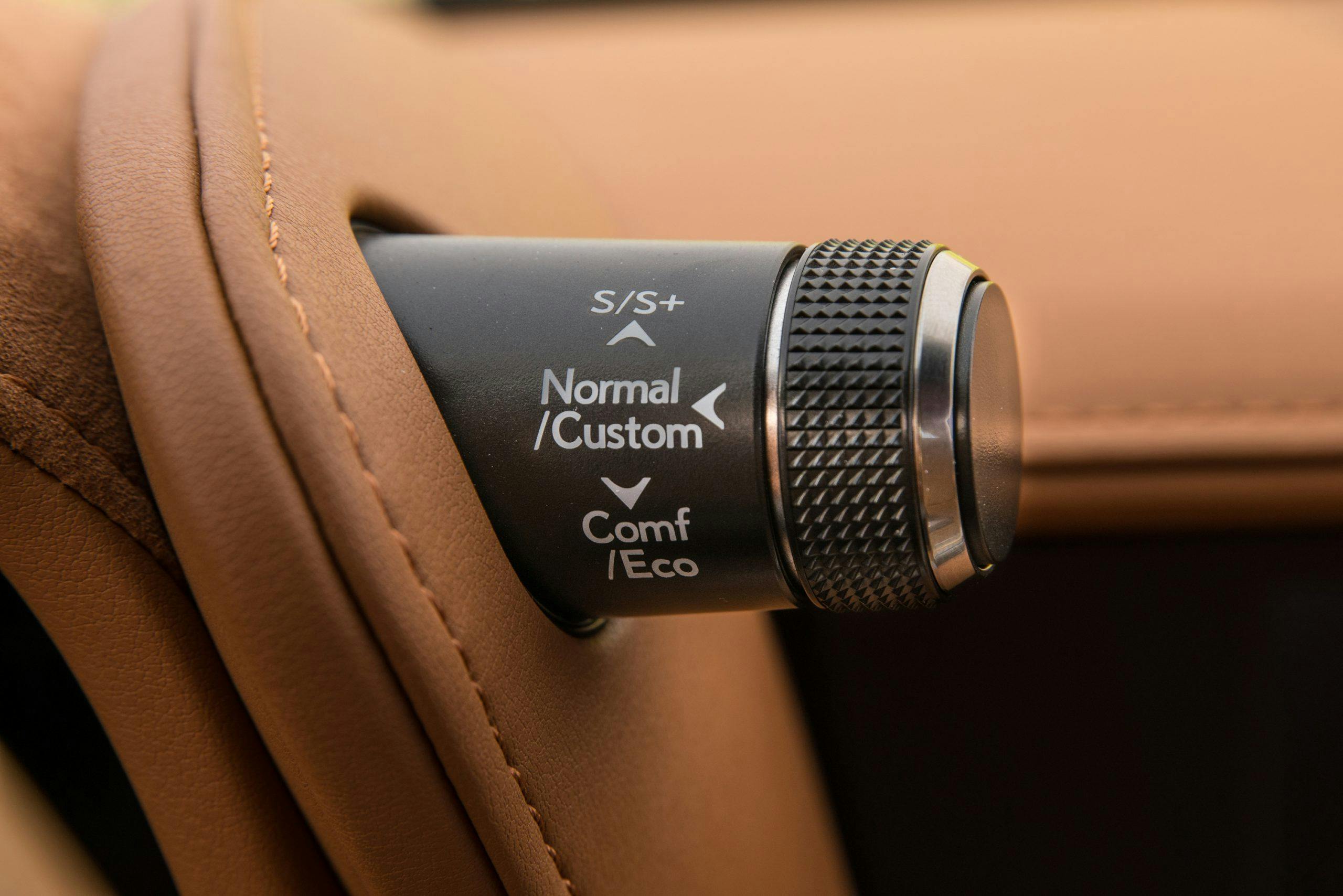
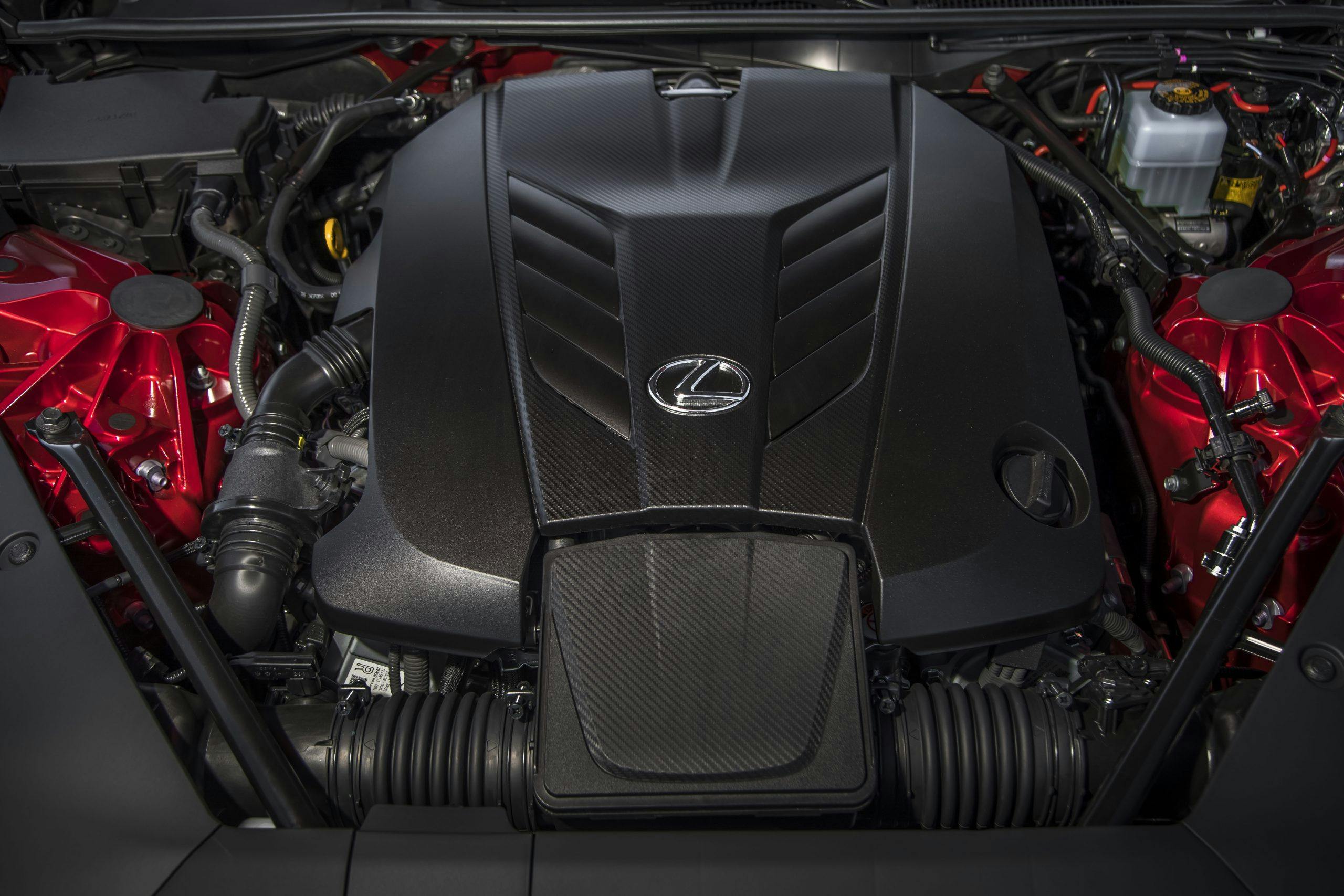





















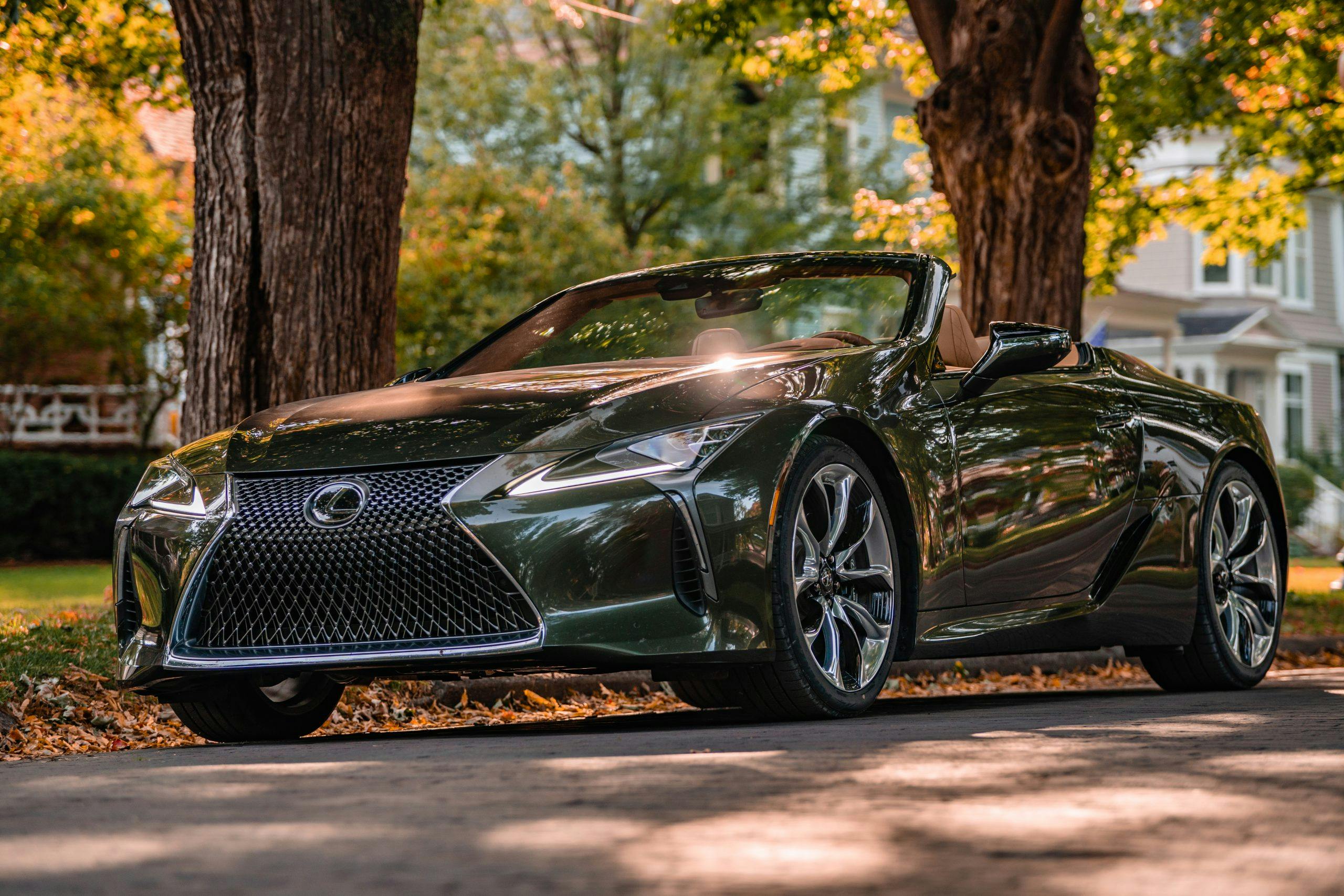
Drop dead gorgeous. Even the grill looks right on it.
I want this Car
Picked up a 2023 Convertible in cloudburst grey / toasted caramel / black top in late January. Although I’ve only put ~2K miles on it since then, it’s a glorious experience every time I drive it!